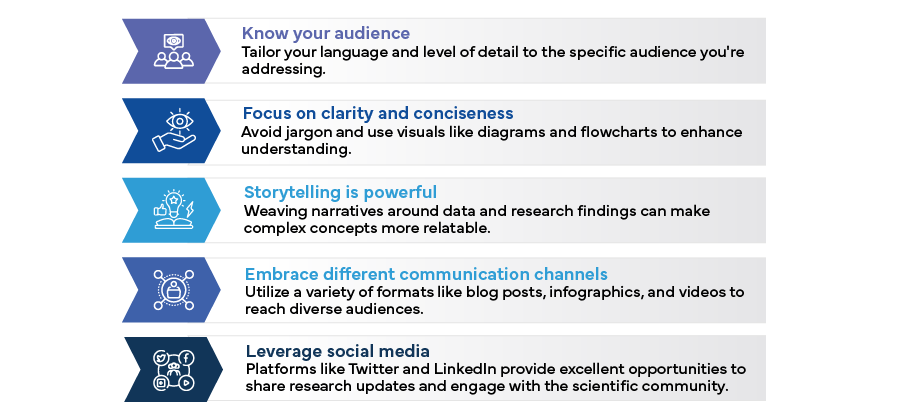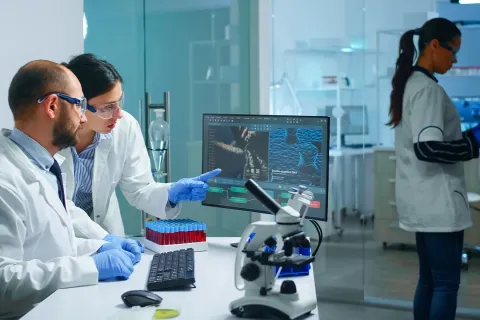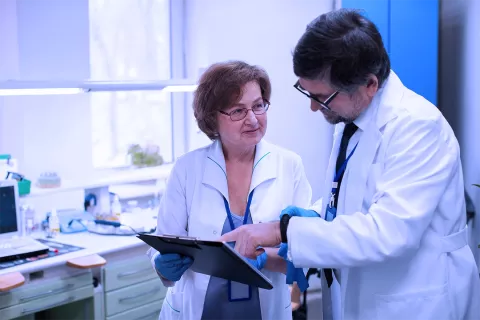
In the fast-paced world of healthcare, breakthroughs and advancements happen at a dizzying pace. Discoveries in gene editing, the rise of personalized medicine, and the constant evolution of medical devices – these are just a few examples of the constant innovation propelling the industry forward. But what good are these advancements if the knowledge they generate stays locked away in scientific journals or lab reports?
This is where scientific communication steps in, acting as the bridge between groundbreaking research and real-world applications. It's the art of translating complex scientific concepts into clear, concise, and accessible information for a diverse audience. Here's why effective scientific communication is no longer just a "nice to have" but a crucial element for the healthcare industry's success:
- Faster Innovation and Improved Patient Outcomes: Effective communication fuels collaboration. When scientists from different disciplines can understand each other's research clearly, it fosters cross-pollination of ideas and accelerates the development of new treatments and therapies. Imagine a cancer researcher sharing their findings on a specific gene mutation with a team developing targeted drug therapies. Clear communication paves the way for faster innovation, leading to better patient outcomes.
- Building Trust and Transparency with the Public: Science can feel like a foreign language to the public. Misinformation and distrust can run rampant when complex medical issues aren't clearly explained. Effective scientific communication helps bridge this gap. By presenting information in a clear, jargon-free manner, healthcare professionals and researchers can build trust with the public. This empowers patients to make informed decisions about their health and actively participate in their care plans.
- Regulatory Efficiency and Streamlined Approvals: Life sciences companies navigate a complex regulatory landscape to bring new drugs, devices, and diagnostics to market. Clear and concise communication is paramount when presenting data and clinical trial results to regulatory bodies. Regulatory agencies rely on well-structured and well-written submissions to make informed decisions regarding product approvals. Effective scientific communication from life sciences companies can significantly improve the efficiency of the regulatory process, saving time and resources for all parties involved.
- Attracting and Retaining Top Talent: The healthcare industry thrives on attracting and retaining brilliant minds. Strong scientific communication skills are essential for researchers and medical professionals. The ability to effectively communicate complex ideas not only fosters collaboration within teams but also showcases expertise and attracts top talent to the field.
- Educating the Next Generation of Healthcare Professionals: The future of healthcare lies with the students and trainees entering the field today. Effective scientific communication is a cornerstone of medical education. Clear and engaging explanations in textbooks, research papers, and lectures empower students to grasp complex medical concepts and prepare them for their future roles.
Strategies for Effective Scientific Communication:

How Can We Help?
At Freyr, we understand the critical role scientific communication plays in the healthcare industry. We offer a comprehensive suite of regulatory services designed to help life sciences companies navigate the complex approval process. Our team of experienced professionals can assist with:
- Developing clear and concise regulatory submissions
- Crafting compelling narratives that effectively communicate the value proposition of new products
- Translating complex scientific data into a format suitable for regulatory agencies
By working collaboratively with life sciences companies, we can ensure that groundbreaking research translates into tangible benefits for patients and the healthcare industry.
In Conclusion:
Scientific communication is the lifeblood of progress in healthcare. By fostering collaboration, building trust with the public, and accelerating innovation, effective communication paves the way for a healthier future for all. As a company dedicated to supporting the life sciences industry, we are committed to promoting clear and concise scientific communication at every stage of the research and development process.









